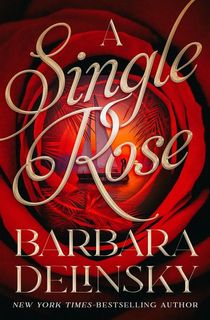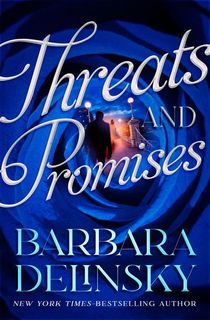Barbara Delinsky isn't ashamed to say that she was kicked out of Honors English in high school because she couldn't keep up. After writing more than two dozen New York Times bestsellers like A Week at the Shore and Blueprints, it's safe to say that she got the last laugh.
She isn't here to gloat, however. In this interview, Delinsky explains how she first got started as a novelist, how she stays one step ahead of the competition, and what she finds both challenging and rewarding about being a novelist. Read on to get her unique perspective on romance, relationships, and writing.
Thank you for taking some time with us. Let's start with your advice to new writers, which was: “Read. Read. Read.” What books did you study and emulate when you were first starting?
Funny thing there. As a child, I was never an avid reader. Oh, I did the typical Little House on the Prairie thing and, of course, reading for school. But it wasn’t until I was a new mother that I began to really read. It was pure escape—and what better escape from the chaos of raising three boys than romance?
When I decided to write a book of my own, I read dozens of books in that genre. Janet Dailey was one of the few Americans in the field at that time. I read and re-read her books, often outlining them before finally sitting down and writing my own. From the start, though, my books were different from hers, if not in structure than in content. In time, as my own voice strengthened, that became more and more true.
Today, I find inspiration in non-genre fiction. Some writing out there is just magnificent. I like to think that my newest books capture a little of that.
After the success you’ve enjoyed, it’s only natural that other authors would want to emulate your style and structure. What has helped you stay ahead of the curve?
It’s really about open-mindedness. I have friends, always new ones, too, so I understand relationships. I read the news, so I know where the world is at. Most important, I write what I feel. Given that what I feel changes with the times, I stay pretty current.
I also like trying new things. What with the number of novels I’ve written, making each one different matters. In pushing myself for that, I move into things that are in the forefront of what people are thinking, feeling, writing—hence ahead of the curve.
Lifetime adapted your novel, A Woman’s Place, into a movie called Custody of the Heart. What was that experience like, and what advice would you give your younger self about it?
I may be the anomaly here, but I was not involved in making that movie. Honestly, I was barely interested. I do books, not movies. I did have approval rights for the screenplay, and it was well done. But what with the title change and the fact that a scant third of my plot was included, I didn’t identify with the movie at all.
Some writers are intimately involved in adaptations of their books. But then, some writers are in writers groups and critique circles and fandoms. Perhaps they’re more outgoing than I am. Truly, I don’t know where they get the time. Me, I just write.
You’ve said that your niche is writing about the emotional crises that we all face, which allow your readers to empathize with your characters. But do you think there’s one thing that all great books share in common? Or something that all compelling relationships share?
Hmm. I’m no scholar of great literature. But based on my own reading experience, I’d say that the one thing shared by great books is, in fact, the same thing shared by compelling relationships—meaningful emotional involvement. Indeed, great books are often great because of compelling relationships.
I’ve been in the same book group for several decades now. We meet monthly, and our best discussions are often ones about books some of us don’t like—and the reason we don’t like a book is usually a failure to connect with the characters. A retelling of facts is the role of a journalist. An infusion of life is the role of a novelist. Compelling relationships are the crux of life.
Mind you, empathizing with a character does not require personal experience in whatever the subject matter is. It does require a well-written portrait by the author that is vivid enough to capture the reader’s senses.
What is reading for if not to live in someone else’s shoes for a little while?
Your books revolve around character relationships. How do you square that with the solitary nature of authorship?
Writing in solitude doesn’t require living in solitude. I have a large family, and I have friends. I also have a vivid imagination. Add those things to an acute awareness of the outside world, and the solitary nature of authorship shrinks to a technical thing.
I also think that with the rising importance of social media for authors, the solitary nature of authorship isn’t quite as solitary as it once was. That said, I’m often mystified by the sheer number of people some authors name as being instrumental in their writing. Wow. If I was intimately involved with half as many people in the course of my writing, I might never finish a book.
What is the hardest part of being an author? What’s the most rewarding part that most people might not consider?
The hardest part—for me, at least—is publicity. If my love of solitude enables me to write day after day, month after month, year after year alone in my office, suddenly wading into crowds of people can be downright intimidating. And exhausting.
That said, the most rewarding part of being an author is … wading into crowds of readers. There are times, alone with my writing, when I feel that no one ever will love my characters as I do. Meeting readers who do love them, readers whose lives have been touched by my books, is the best!
Is there a reader reaction, for better or worse, that sticks with you? If so, what was it?
It’s always the “for worse” comments that stick. I think many authors are this way. Of thirty comments I read, twenty-nine may be positive, but it’s the single negative one that sticks. Oh, there’s always the reader who objects to a certain four-letter word, a particular plot twist, or the mention of an intimate body part. The most startling reaction, though—the one I recall to this day—was the reader who took off on the politics of one of my books. Excuse me? I don’t write politics. That and religion are the two things I studiously avoid. I can only imagine that something innocent in my book set off this reader.
On the flip side, I remember the reader who said that she had a quote from one of my books etched into her sister’s grave stone. I was—am still—deeply touched.
If readers are new to your work, where would you recommend they get started?
That’s a great question. I normally urge readers to start with my newest release, A Week at the Shore, which is a complex family story with love thrown in on multiple levels. That said, it really depends on what kind of book a reader wants. Given the craziness in our world right now, I’m personally looking for simple and straightforward, heart-warming, and uplifting. In that sense, a great place for readers to start with me is with books like Threats and Promises, A Single Rose, and Twelve Across.


